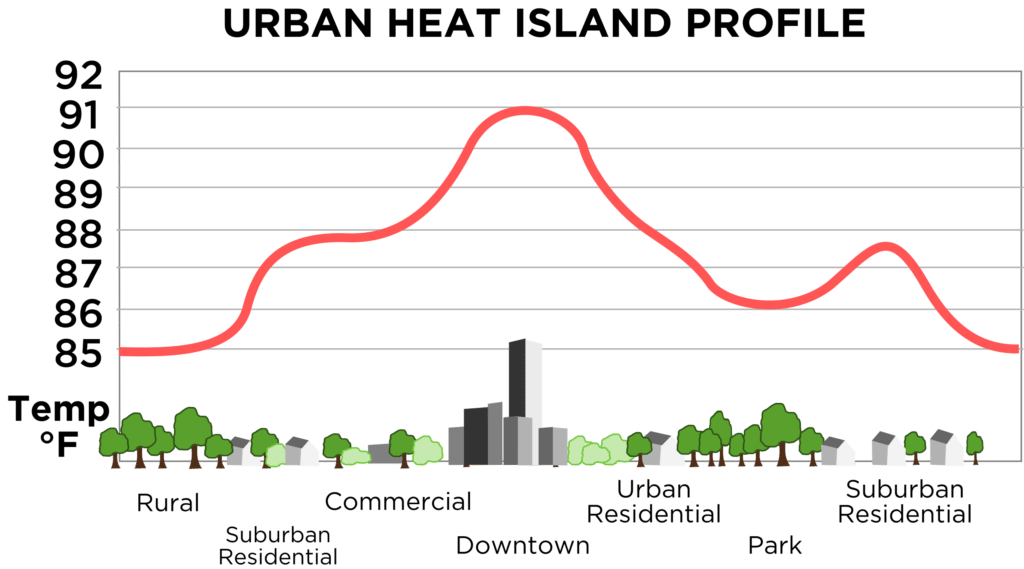Why Urban Planning is a Crucial Tool in Fighting Climate Change
How we build our towns and cities has a huge impact on the environment. Zoe, a young person from Sydney in Australia, explains why.
Heatwaves are becoming an inherent danger to Australian suburbs as our planet warms and climates become less bearable. Currently, heat has the highest mortality rate in comparison to any other natural disaster prevalent in Australia. This damage will indefinitely prevail more detrimentally unless change is taken urgently.
A snippet of the reality we could be facing was seen back in January 4, 2020, when Penrith, a suburb in western Sydney, reached a record high temperature of 48.9℃. One of the main contributors to this inhumanly hot climate is the urban heat island effect.
The urban heat island effect is when urbanised areas experience hotter temperatures than their rural counterparts due to human activity. Urban heat islands create soaring temperatures during the day and reduce cooling at night, exceeding air pollution and an array of medical problems relating to heat.

The temperature difference between urban areas and rural areas is highly based on how the surface each area is sufficient in absorbing heat. Urban areas are blanketed in concrete roads of dark shades and buildings also absorbing heat. In addition, the condensing of vehicles releasing carbon dioxide into the atmosphere leads to extra heating.
Unlike rural areas, in urban areas there are substantially fewer trees or natural environments which are necessary to keep a homeostatic climate. Rural areas on the other hand have a far more natural landscape with an abundance of greenery and less man-made infrastructure, leading to an averagely cooler climate. Efficient urban planning is essential to bettering the future of the world as emerging infrastructure and further urbanising is conducted.
Awareness and education about this topic should be more accessible and promoted to the public. Ways to reduce the urban heat island effect include lighter concrete colours, white roofs on housing, building roofs having trees or gardens on top, enhanced use of public transport, continual plantation of trees in urban areas, and switching to electric vehicles.
The future is reliant on how we build it today. Through proper changes and exceeded efforts to bring awareness about this topic, we can combat the effects of inefficient urban development and planning.

Interested in doing an Expedition yourself?
Explore our Expedition resources
Hear directly from Raleigh alumni and get your questions answered.
You’ll find everything in one place about our Expeditions.
Send us an enquiry with what you’d like to know more about.



